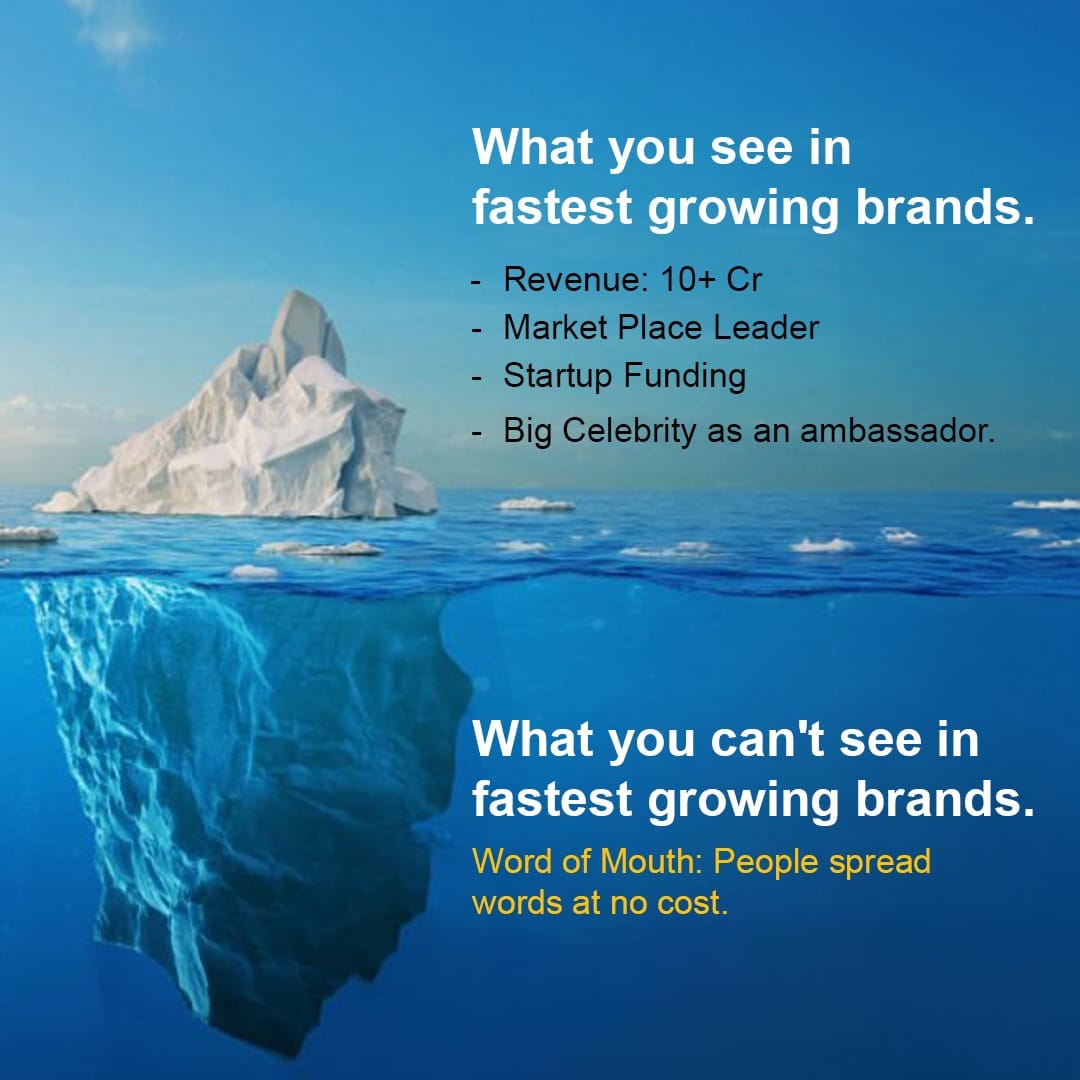One Reason, Big Difference: The Secret to Fast-Scaling Brands

Most brands spend a lot of money on marketing & advertising, but only a few have become popular. The remaining brands have failed to gain traction.
Since people are spending money, they think that we will become a brand. But when people see your ads, they don't connect with the product or idea.
As we know, people are more likely to trust friends and family than brand words. People believe that every brand says their product is really good.
So, how do you make people trust your brand?
We need something to cut through the clutter and give people a sense of uniqueness and brand story to get people's attention in the crowd.
Long ago, I was curious how brands are scaling faster, within 5-7 years, reaching the mark of 10cr ARR revenue. When I compared the content, images, quality, and functionality of fast-growing brands and small businesses, most of them were similar.
I didn't say small business as a brand. Since people are not talking about small business, we should not call that a brand. When discussing a product or idea and searching for the brand name, we must call it a brand.
One reason is that the brand makes people talk about the products or brand.
Then, how do you get your customers to speak about your small business and build it as a brand in the long term?
WORD OF MOUTH is the key to making a huge difference. This doesn't happen after spending a bunch of money on marketing.
In fact, vilvah generated 29cr ARR revenue in 23-24 as per INC. In the initial stage of the brand, she just posted on Facebook & got some sales from friends. Then slowly started growing without paid media support massively.
This could happen only with people who spread the word about the product simply because the product is great and better than others.
Direct and organic searches are always dominant if we look at all the common traffic sources across successful companies. This allows brands to control their expenses & increase sales predictably.
Having organic traffic gives control over people. However, most small businesses depend on traffic from paid media, which they don't have control over. Something goes off on paid channel, we can't pr-edict the sales we are getting.

WORD OF MOUTH IS HARD AT FIRST.
This is one of the ancient marketing strategies many brands followed before the internet era.
Right now, people have underestimated the power of spreading the word through the people.
Can you guess why?
Because most people are able to get some sales through ads or marketplaces, since they can get the revenue faster & easier, they are fixing the mindset that is the way to grow & not looking for how brands massively grow earlier.
Ads or Marketplace is easy & have control over it.
But, Word of mouth is hard at first & takes time. Also, we can't force people to spread the word about us.
We tell our friends & relatives about our recent mobile, recent trip to famous place, remarkable movie etc.
This happens naturally throughout life. They don't aim to promote the products or brands.
If you look at the 121 fastest-growing d2c brands in the market, you can see something common that you don't see in the small business.
What you see on the internet (The founder who gives interviews or just got 100+cr fund) is different from what is happening that drives the massive growth.

boAt has successfully leveraged word-of-mouth marketing by collaborating with Bollywood icons and cricketing stars like Virat Kohli and Hardik Pandya.
These partnerships have elevated their brand visibility, resonating with a young and dynamic audience. Such endorsements have significantly contributed to boAt's rapid growth, positioning it as a leader in the competitive consumer electronics space.
This made boAt seen everywhere and people started talking about the products.